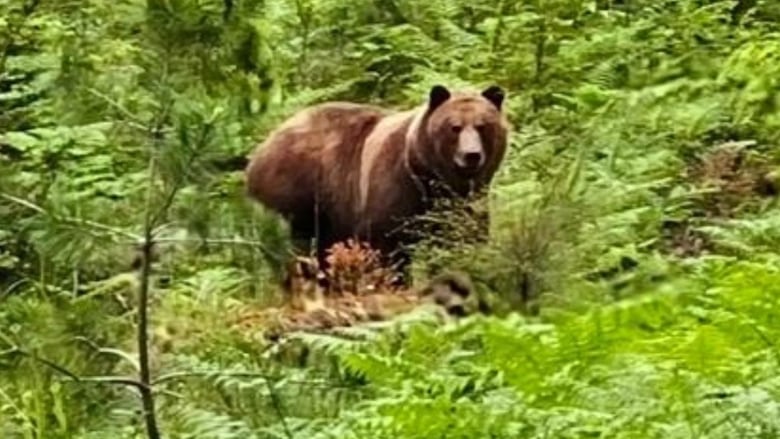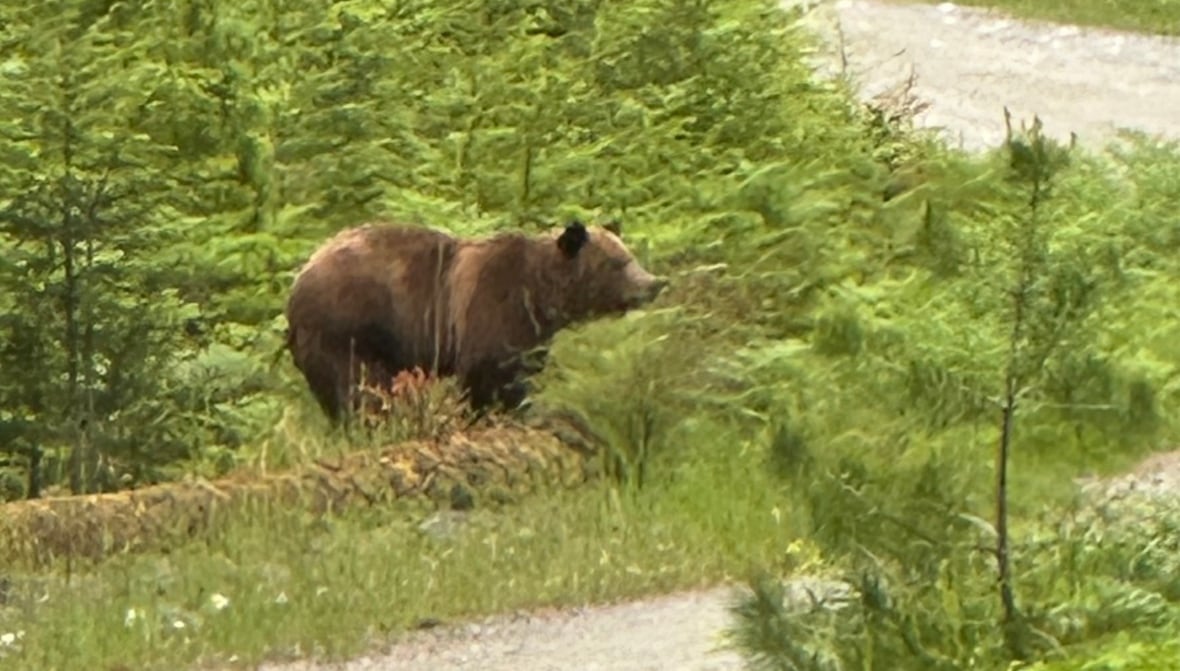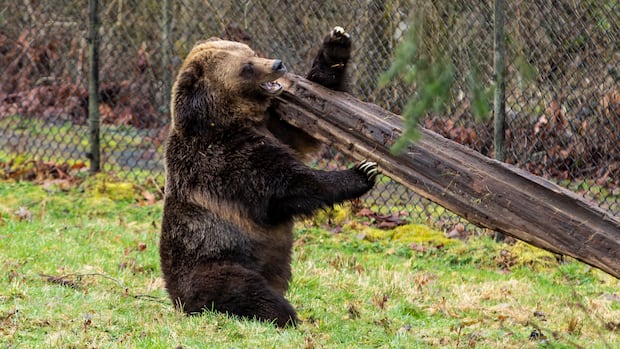Controversial grizzly killed on island off B.C. coast, conservation officers investigating
Grizzly has been source of concern for many residents on Texada Island

British Columbia's Conservation Officer Service (COS) says a grizzly bear on an island off the Sunshine Coast has been shot and killed without authorization.
An investigation is underway, and the bear will undergo a necropsy, the COS said in a Facebook post.
Earlier in the day, the service said it was investigating an RCMP report that the bear was shot and possibly wounded by a member of the public in the Van Anda neighbourhood of Texada Island, near Powell River.
The grizzly was first spotted on Texada on May 25. Nicknamed "Tex," the bear has sparked debate among the residents of the 300-square-kilometre island, which is home to just under 1,200 people.
Some residents wanted the bear moved or killed, while others wanted it to be left alone.
Texada doesn't usually play host to large predators as it sits between the Sunshine Coast and Vancouver Island in British Columbia's Strait of Georgia. Wildlife management experts say it's likely the bear swam to the island from Powell River.
Relocation was underway, minister says
Three coastal First Nations had worked together to come up with a plan to move the grizzly bear, and on Tuesday, following news of the bear's death, the province revealed it had been working to bring that plan to fruition.
"The timing [of the death] is especially unfortunate as we were actively working with First Nations on a new plan to attempt to capture and translocate the grizzly bear from Texada Island to a remote area up the Coast, far away from communities," Lands Minister Randene Neill said in a written statement.
Neill said officials were actively looking for the bear in order to lay a live trap when they received news it had been killed.
In an interview with CBC News, Erik Blaney of the shíshálh Nation said the nation was ready to go.
"We had a boat that was able to take him up by boat, or we were going to fly him up," he said. "So, what we were waiting for was for the provincial vet to give the go-ahead for the administration of the drugs."
Blaney said that the area where the bear would have been relocated had plentiful salmon runs, and he firmly believed it would have lived its best life if relocated.
He told CBC News that he heard the bear was shot last week.

"He walked around injured for quite some time before somebody found him suffering and ended up having to make the final shot to put him out of his pain," he said.
Blaney said that social media misinformation and hate about the bear inflamed the situation.
"I think people were using that fear mongering and hate to either spread rumours, or create fear, or create situations that didn't happen, that ended up sealing this bear's fate," he said.
Neill said that once a necropsy had been completed, the bear's remains would be returned to the Tla'amin First Nation and shíshálh Nation.
That news of the planned relocation was a change from previous information released by the province, which indicated relocation might not have been an option.
The province had previously told CBC News in a written statement that the adult male grizzly, estimated to be five years old, was not a good candidate for relocation because it had already been moved twice.
The service said the bear had already been relocated after it was found wandering near schools and downtown areas of Gibsons and Sechelt, on the B.C. mainland last year.
After being moved to Vancouver Bay — partway up Jervis Inlet, about 50 kilometres north of Sechelt — the grizzly returned to the Sunshine Coast. It was then relocated even further north to the far end of Jervis Inlet.
The statement also included a list of problematic behaviour the bear has engaged in this year, including:
- Stalking two residents while walking on a trail in Powell River on May 22. The residents escaped into the water while the bear paced on shore for half an hour, tearing up one of their jackets.
- Stalking a resident walking with her horse and dog for half a kilometre on Texada Island on May 28.
- Reportedly chasing livestock on June 10 and 11 on Texada Island.
The statement also said there have been multiple sightings of the bear near a school, a store and farms on Texada.
'Very, very sad': regional district director
According to WildSafeBC, there are about 15,000 grizzly bears in British Columbia, representing about a quarter of their total population North America-wide, with several populations considered a "species at risk" by both the provincial and federal governments.
The non-profit group, the Grizzly Bear Foundation, which is focused on preserving grizzlies across North America, said it was important for lessons to be taken from the bear's death.
"Tex's death is a tragedy that we must learn from to build a better path forward for bears and communities," executive director Nicholas Scapillati said in a written comment.

He said the foundation would be working with First Nations and other groups to provide recommendations for the province on how to better co-exist with bears.
Regional district director Sandy McCormick, who represents Texada, said she was "very, very sad" to hear news of the bear's death.
"Like many people on the island, I really feel like it should have had a chance to be relocated," she said. "It should have had a chance to thrive in a community that wanted him."
McCormick said she had come "within 40 feet" of the bear when it "stumbled into her yard," and it didn't show any aggression.
"It was a very beautiful-looking animal."
McCormick said while she understood people's fears, especially given how few predators make their way to Texada, she says she wished the proper channels had been followed to remove the bear from the island.
"This is not the way," she said.
With files from Kathryn Marlow and Andrew Kurjata



